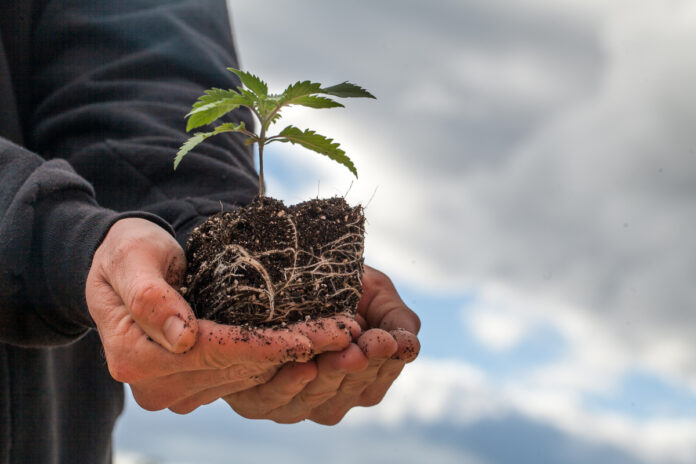WASHINGTON, D.C. – The Hemp Industry Association (HIA) and RE Botanicals, Inc. on Monday filed a complaint in federal court against the Drug Enforcement Administration (DEA), citing regulatory overreach that threatens to destroy the domestic hemp industry, before its even begun. The plaintiffs are represented by cannabis legal firms Vicente Sederberg LLP, Kight Law Office PC, and Hoban Law Group.
Plaintiffs called the drug agency’s misinterpretation of the 2018 Farm Act provisions regarding hemp production a “long-running attempt to regulate the production of legal hemp in excess of its statutory and delegated authority.”
The new 30-page complaint, filed in the U.S. Federal Court of Appeals for the District of Columbia Circuit, presented a case that illustrates overreach of hemp regulation by the DEA, which plaintiffs argue effectively prevents the U.S. hemp industry from establishing itself—like other legal agricultural businesses.
This most current filing follows a petition for review filed by HIA and RE Botanicals in mid-September, also in the U.S. Federal Court of Appeals for the District of Columbia Circuit, which charges the DEA and its Acting Administrator Timothy Shea.
In that complaint, petitioners claim an interim final rule (IFR) issued by the DEA in August, titled, ‘”Implementation of the Agriculture Improvement Act of 2018,’ has not succeeded in expanding federal hemp regulations as provided for in the 2018 Farm Act (also know as the Agricultural Improvement Act of 2018).”
Plaintiffs said, “The 2018 Farm Bill also delegates exclusive authority over hemp production to the United States Department of Agriculture (“USDA”), with only one narrow exception for the Food and Drug Administration (“FDA”).”
Plaintiffs argue the DEA’s continued misinterpretation of provisions contained in the 2018 Farm Act has been evidenced by the IFR, in which the agency said the statutory amendments in the 2018 Farm Bill do not remove essential steps of hemp production from its purview.
The IRF also stated any cannabis product with a cannabinoid THC level of more than 0.3 percent, including hemp crops and extracts, continues to fall under the purview of the DEA and qualifies to be classified as an illegal drug under the Controlled Substances Act (CSA).
Industry members have argued raw materials and extracts can unintentionally exceed the legal level of THC, but that THC is removed during processing and the resulting materials are then used to produce legal products.
Monday’s complaint described issues raised by the DEA’s interpretation of purview over hemp products and said, “Hemp processors and manufacturers who work with and/or store IHM and/or WHM must now choose between ceasing to process, manufacture, and/or store hemp; obtaining a Schedule I license from DEA; or risking criminal prosecution under the (Controlled Substances Act). Given the centrality of hemp processing to the hemp industry’s supply chain, forcing processors to choose between the foregoing options would effectively destroy the entire hemp industry.”
Continued confusion over hemp regulation has led to hemp crop cultivators being excluded from some forms of federal disaster relief funding available to other farmers and agricultural businesses during 2020—a year of back-to-back global economic and climate disasters.
Regulatory confusion also prevents financial institutions and banks from doing business with the industry, due to perception of increased risk for prosecutions or regulatory issues. Hemp and cannabis industry members also typically cannot access business loans or even basic business banking services, because of regulatory grey area at the federal level.
Law firm Vicente Sederberg quoted the complaint in its media statement and said,”[The] DEA’s latest jurisdictional overstep threatens every stage of the hemp production supply chain and jeopardizes the entire hemp industry. If allowed to stand, DEA’s intrusion will undermine a linchpin of the new hemp economy that has created tens of thousands of new jobs and provided a lucrative new crop for America’s struggling farmers.”
In a related story, this latest court action comes following reports HIA’s national board of directors in July voted to close thirteen of its state chapters, after chapters complained they had not received funds owed by the organization.
Media reports said financial troubles caused fourteen HIA state chapters to ask the HIA’s national office for a formal forensic audit, with which the organization has yet to comply.













